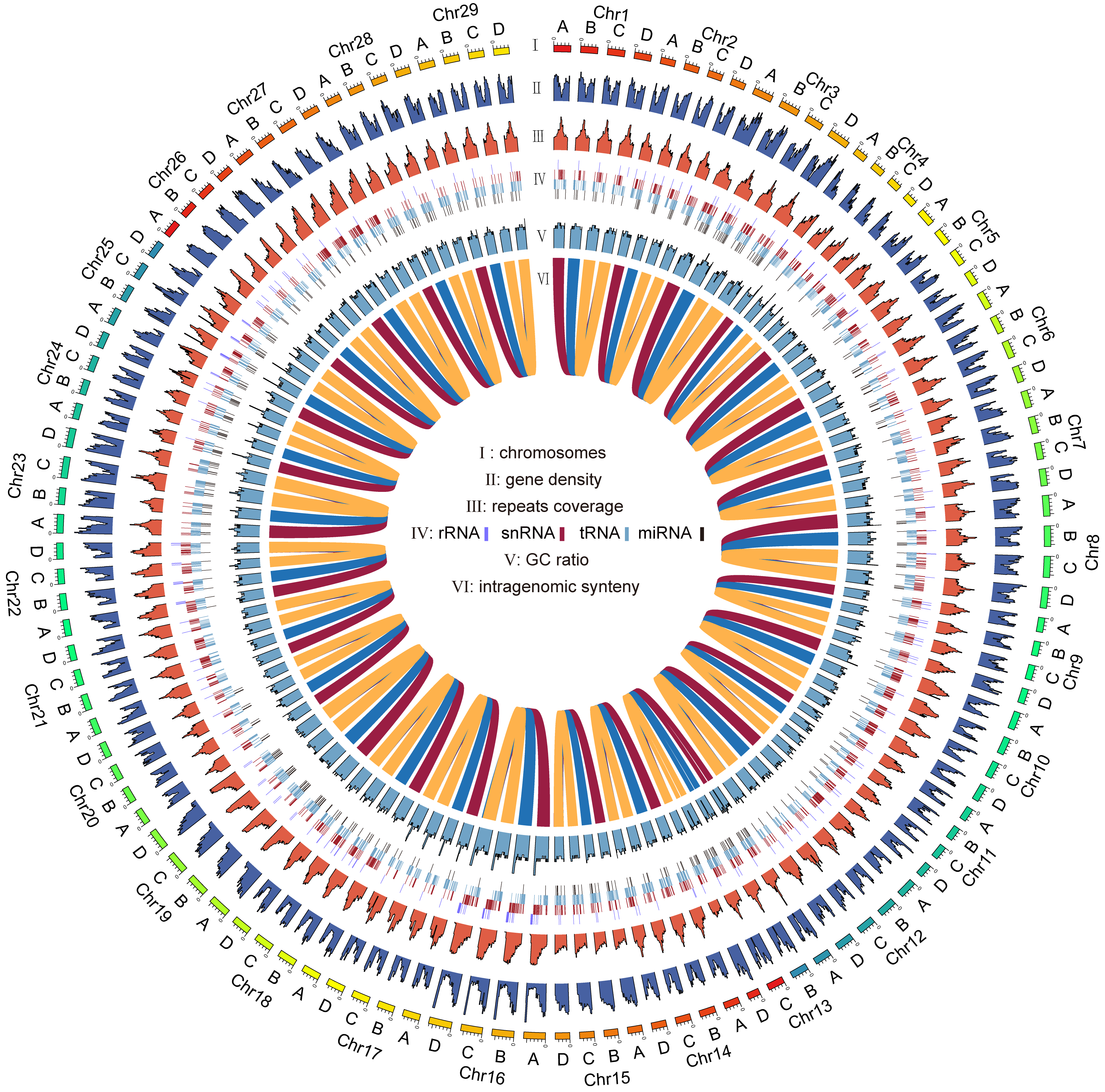Name:WANG Yanchang
Tell:
Email:kiwifruit@wbgcas.cn
Organization:Wuhan Botanical Garden
Research Dissects Genome Assembly, Adaptive Evolution and Trait Localization of Kiwiberry
2024-03-28
Actinidia arguta (generally called as kiwiberry) is a rapidly developing kiwifruit with small, but smooth, hairless skin and edible whole fruit. With rich nutrient content, A. arguta has laxative and immune-boosting medicinal properties, and excellent cold and disease resistance, making it as a new type of edible fruit or functional food. However, the overall scientific evaluation, protection, and utilization of this complex polyploid resource are still lacking.
Researchers led by Prof. WANG Yanchang and Prof. GAO Lei from Wuhan Botanical Garden, together with the collaborators from Chinese Research Academy of Environmental Sciences, and The New Zealand Institute for Plant and Food Research Limited, generated chromosome-scale reference genome assemblies of A. arguta to dissect adaptive evolution and trait localization.
A high-quality tetraploid male genome of A. arguta was constructed, and confirmed to be a autotetraploid. It was hypothesized that the current tetraploid was formed by doubling of the diploid ancestor in approximately 3.13 million years ago.
A. arguta has many environmental adaptation loci in its genome. 101 wild accessions were collected. Population genetic analyses identified two subpopulations, Northern Group and Southern Group, and identified divergence times, gene flow, population expansion events, and genetic loci associated with cold stress, drought, and vernalization. Paleoclimate data were reconstructed for the first time, revealing the selection of genomic loci by historical climates over the past 22,000 years. The evolutionary and environmental adaptation mechanisms of A. arguta populations were explored.
In addition, this study uncovered three key genes (AaCEL1, AaPME1 and AaDOF1) that caused fruit softening differences, and identified the sex determining region which was different from other reported species in Actinidia.
Results have been published on Plant Communications entitled “Genome assembly of autotetraploidActinidia argutahighlights adaptive evolution and dissects important economic traits”.
It was supported by grants from the Chinese national key research and development program, the biodiversity survey, observation and assessment program awarded by the Ministry of Ecology and Environment China, the international partnership program of the Chinese Academy of Sciences, the regional key projects of science and technology service network initiative granted by Chinese Academy of Sciences, and the Natural Science Foundation of China.

Genomic characterization of tetraploid Actinidia arguta (Image by LU Xuemei)